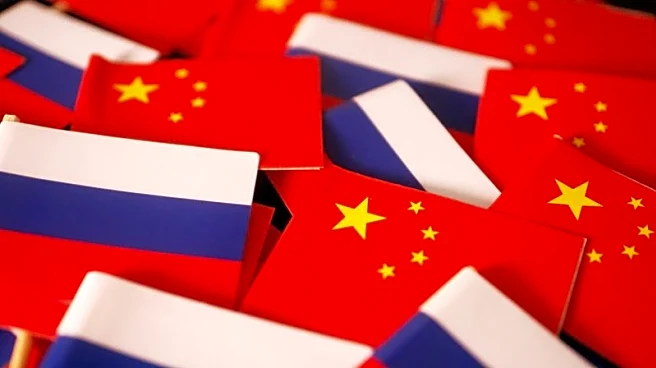By Emma Farge
GENEVA (Reuters) -A small group of countries led by China and Russia has repeatedly tried to block funding for human rights-related work at the United Nations over a five-year period, according
to a report by the non-profit International Service for Human Rights.
The report cited proposals for major cuts to the U.N. human rights office and for the elimination of funding for some U.N. investigations, in what it called a weaponisation of the budget process.
While those attempts, made in closed-door U.N. meetings, did not succeed, the authors voiced concern about them at a time when the United Nations is suffering from a financial crisis and as the administration of U.S. President Donald Trump steps back from multilateralism.
"The proposals that China and Russia have put forth are clearly about crippling OHCHR (the Office of the High Commissioner of Human Rights)," said Angeli Datt, one of the authors of the 97-page report titled "Budget Battles at the UN".
There was no immediate comment from the Chinese and Russian missions to the United Nations in New York.
Raphael Viana David, programme manager at ISHR for China and Latin America, said the proposals set a dangerous precedent and highlighted a trend for "putting non-interference in national affairs over human rights".
The United States, formerly one of the most active members of the Geneva U.N. Human Rights Council, has disengaged under Trump, alleging an anti-Israel bias.
"(This) will create space for China and Russia to expand their influence within budgetary processes at a time of critical structural U.N. reform," the report said.
One of the proposals brought jointly by China and Russia in 2021 sought to block all resources to some 17 projects set up by the Geneva rights council, a summary of the motion included in the report showed.
Another from 2024 backed by China, Russia and others sought to block all resources for investigations on Iran, North Korea, Ukraine, Belarus, Eritrea, Sudan and Venezuela.
The report was based on interviews with dozens of diplomats, experts and U.N. officials, as well as a review of both public and private U.N. documents between 2019 and 2024.
China says in U.N. meetings that it supports human rights but has raised concerns about interference in states' internal affairs. It backs funding for some aspects of human rights such as economic, social and cultural rights.
Russia has publicly opposed U.N. investigations which target its own record and those of its allies.
U.N. work on human rights gets just 5% of the U.N. regular budget and funding shortages have already delayed a Congo probe. High Commissioner Volker Turk has also warned that those shortages would weaken global accountability efforts.
(Reporting by Emma Farge; Additional reporting by Michelle Nichols in New York; Editing by Edmund Klamann)










